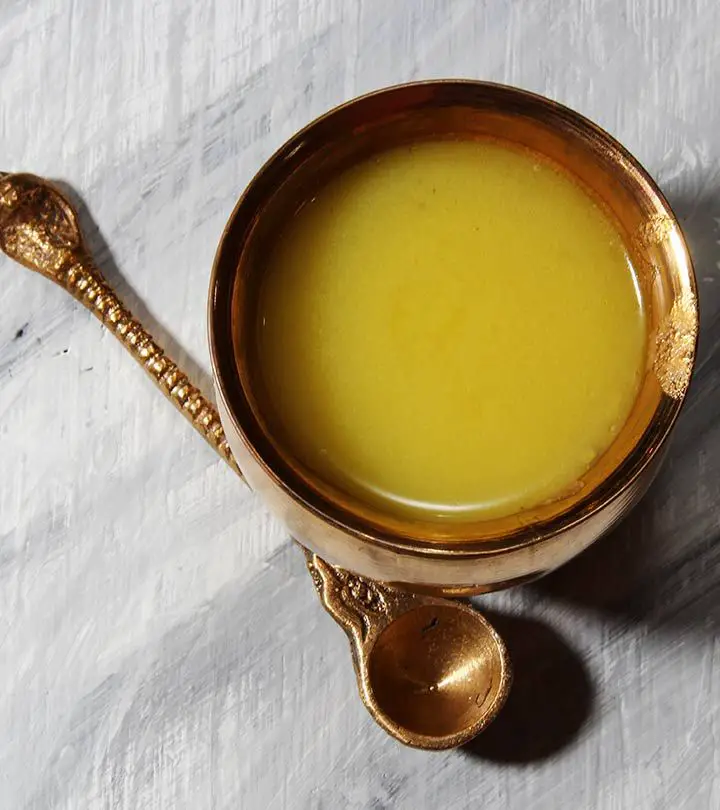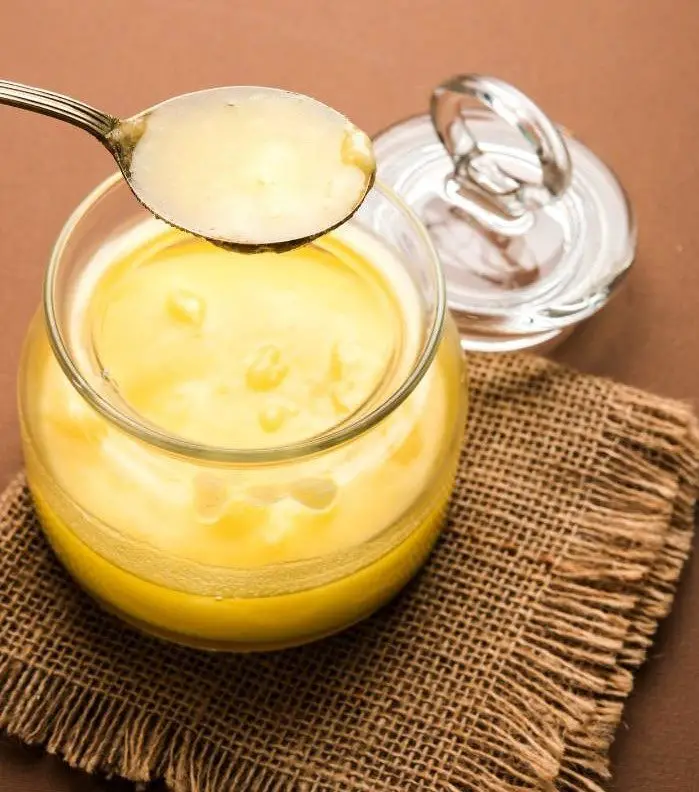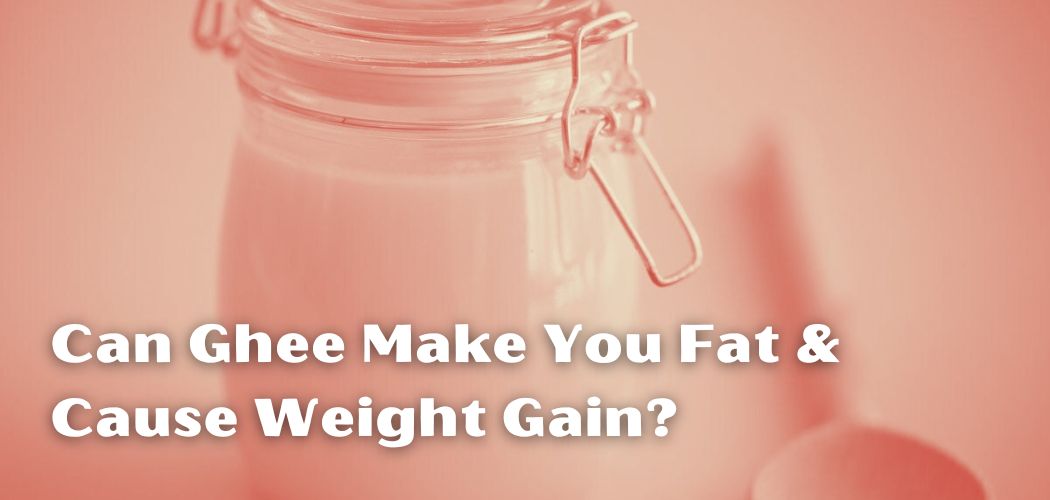Ghee is a type of clarified butter that is commonly used in Middle Eastern and Indian culinary traditions.
It is created from butter derived from cow’s milk that is heated at a low temperature until the water evaporates, leaving behind milk solids. If required, the solids are filtered or skimmed off. Only clarified liquid fat, known as ghee, remains.
Because ghee is often heated to temperatures below 100 degrees, it retains more nutrients than conventional clarified butter.
A centuries-old system of alternative medicine practiced in India known as Ayurveda, ghee is utilized in conjunction with herbal therapy.

In addition to its purported spiritual and therapeutic virtues, ghee has recently acquired popularity as a healthier substitute for conventional butter. Despite the growing number of scientific studies demonstrating its health advantages, additional research is required.
Many individuals may have advised you to exclude ghee from your diet if you are pursuing weight loss. Since ghee is a source of fat, most individuals who are attempting to lose weight avoid consuming it.
But is it necessary to eliminate this beneficial fat source in order to reduce weight? Read on to learn why you should or should not exclude it from your diet plan.
Contents
Information on Nutrition
One teaspoon of ghee contains the following:
- Fat: 5 grams
- Protein: 0 grams
- Calories: 42
- Sugar: 0 grams
- Fiber: 0 grams
- Carbohydrates: 0 grams
Ghee is an excellent source of:
Additionally, ghee is a rich source of Vitamin E. Studies have demonstrated that vitamin E possesses powerful antioxidant effects. Antioxidants such as Vitamin E have been associated with a reduced incidence of cancer, arthritis, and cataracts. Additionally, it helps lessen the risk of heart disease.
Health Advantages
Ghee contains several vitamins, antioxidants, and healthy fats. Although fat should be ingested in moderation, research indicates that consuming fatty foods such as ghee can aid in the absorption of some critical vitamins and minerals.
Cooking nutritious foods and veggies in ghee may enhance nutrient absorption.
Several possible health benefits of ingesting ghee have been identified through research:
Anti-Inflammatory Outcomes
Ghee has been used topically in Ayurvedic medicine to treat burns and edema. Despite the lack of scientific evidence, ghee contains the fatty acid butyrate, which is believed to have anti-inflammatory qualities.
According to studies, butyrate in ghee helps reduce inflammation in the body.
Fight Obesity
According to studies, CLA may help combat obesity. And it is abundant in ghee.
According to research, the CLA present in ghee may aid in preventing excessive weight gain. It may also help reduce the fat mass of some individuals.
Enhance Heart Health
Despite its high-fat content, ghee has high levels of monounsaturated Omega-3s. These beneficial fatty acids promote a healthy circulatory system and heart.

According to studies, incorporating ghee into a nutritious diet can help reduce dangerous cholesterol levels.
Alternative to Lactose Products That Is Healthier
Ghee is made by eliminating milk solids from milk. Due to this, it contains just trace levels of the milk sugars and proteins lactose and casein. It is an excellent source of fat for lactose-intolerant and dairy-allergic individuals.
Ghee For Weight Loss
The suggested daily allowance of ghee for weight loss is one teaspoon, which can be easily consumed.
When you have attained your ideal weight and wish to maintain it, you can consume up to 2 tablespoons of ghee each day, but no more, as consuming more than that will lead to weight gain.
As ghee is rich in omega-3 (DHA) and omega-6 (CLA) fatty acids, it can aid in weight loss. It is believed that these good fats boost lean body mass while decreasing extra fat. It is also stated that ghee offers additional energy to the body by mobilizing and metabolizing fat cells.
It is advised not to consume more than one to two teaspoons of ghee every day. Consult your doctor before switching your fat source if you suffer from any lifestyle-related illness.
The Risks of Consuming Ghee
Due to its high-fat content, ghee should be used in moderation as part of a healthy diet. Consult your physician regarding the optimal dietary options for you. Consider the following before incorporating ghee into your diet:
Cardiac Disease
In moderation, ghee can help reduce the risk of heart disease, but too much-saturated fat can increase the risk of heart disease. When integrating ghee into their diet, those with other cardiovascular disease risk factors should be cautious.
Weight Gain
Despite the fact that the CLA in ghee has been found to decrease weight gain in certain individuals, ghee is a high-calorie, high-fat food. Despite its health benefits, over-consumption of ghee can lead to weight gain and increase the risk of obesity.
Is It Healthy?
According to a study, ghee is an excellent source of DHA (docosahexaenoic acid). DHA is a healthful lipid and the most often consumed omega-3 fatty acid.
Omega 3 is an important lipid that our body cannot produce on its own and therefore must obtain from outside sources.
DHA has been shown to lessen the risk of cancer, heart attack, insulin resistance, and arthritis. Ghee contains some necessary amino acids that aid in reducing the amount of fat cells.
It also includes butyric acid as well as vitamins A, D, E, and K, which strengthen the immune system, improve gastrointestinal health, maintain healthy bones, and enhance eye health.

According to Ayurveda, ghee protects the body against a variety of ailments, nourishes and lubricates the joints, and enhances the absorption of fat-soluble nutrients.
Ghee is composed of 99.9 percent fat, 1% moisture, fat-soluble vitamins, and burned milk protein components. As it is made with butter, which contains saturated fats, it remains fresh even at room temperature.
Conclusion
While ghee may be an excellent substance that aids in weight loss, you must remember that anything in excess is harmful. Despite its health benefits and weight loss benefits, ghee should be used in moderation due to its high saturated fat content.
It is permissible to consume one to two teaspoons of ghee daily for optimal advantages.
Use ghee to burn belly fat and ensure weight loss; don’t forget to consume a nutritious diet and engage in physical activity to lose weight in a healthy manner.

